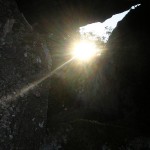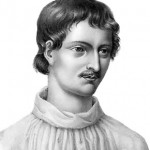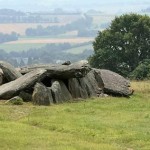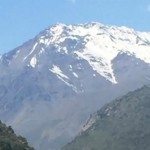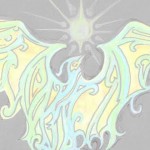In September 2001, I was in the United States to talk about a new book I had written with my husband – Your Dark Side. This was a book about transformation of the dark side of the personality. On the morning of September 11th I was speaking on a series of radio shows and was being interviewed by telephone from my hotel bedroom in downtown New York. Just after 8.45, telephone reception became poor. There was crackling on the line and a sudden shift in the line of questioning. ‘What do you think about international terrorism? Was this a manifestation of the dark side of the personality?’ A big and complex question – and one I struggled to answer for the last ten minutes of the interview. Then I put down the phone. The date was September 11th 2001. As I spoke the first of Twin Towers had been hit. As my husband and I went out onto the street, United Airlines Flight 175 hit the second Tower.
Terrorist or hero, fanatic or martyr?
This month we have seen in Europe one of our most shocking terrorist acts. On January 7 2015, twogunmen shouting ‘Allāhu akbar’, ‘God is great’, and ‘the Prophet is avenged’, stormed the offices of the satirical weekly Charlie Hebdo, killing twelve people and wounding eleven others. Some were staff of Charlie Hebdo. Others included a maintenance worker and police officers. Why did the gunmen decide to launch their attack? Because they didn’t like what the journalists and cartoonists of Charlie Hebdo said and illustrated.
When I heard the news shortly after it happened, I was profoundly shocked and distressed. Paris is an iconic city, one of the great homes of European civilization. It is a cradle of European art and a birthplace of ‘Liberté, Egalite et Fraternité’. I felt as though something personally dear to me had been violated – my belovèd Paris raped.
Acknowledging the shadow within
It is easy to label the actions of the terrorists as ‘evil’. That was my reaction when I heard the news. And it was an easy step from shock and horror to anger and disgust, and from disgust to a feeling that the people who did this were alien and ‘other’, ‘not-human’; all too easy to go down that slippery slope of becoming what all terrorists desire – for their enemies to become hate-mongers like themselves.
As a Pagan, I do not believe in an external force of ‘evil’ in the universe. Rather I subscribe to the view of Mahatma Gandhi:
The only devils in this world are those running around inside our own hearts, and that is where all our battles should be fought.
Evil is human-made, a result of fear, ignorance, anger and frustration. When such pressures build up, it is easy to fantasise that there is some simplistic solution. The maiming and destruction of our enemies, the inquisition, ethnic cleansing, wars of religion – all feed off the same delusion – that there is a good, pure, right ideology that will make the world a better place. If people will not subscribe to it voluntarily, then they are evil and must be destroyed. Once we have labelled a group as ‘other’, the enemy, we can persuade ourselves that in order to protect what we think precious and right any action is justifiable.
History has shown us that no group is immune to this kind of thinking. To think, ‘I could never be like that’ is dangerous. If we are unaware of the seductive power of righteous wrath, it is difficult to root it out from our psyches. All too soon we are in its grip. The ability to do evil is intrinsic in our human nature. It arises when a conscious being has the possibility of choice. As humans we have the option of performing acts that serve the greater good or acts that promote misery and destruction. These choices, which face us daily, are subject to our conflicting emotions – love, hate, pity, cruelty, greed, selfishness and altruism – all the realities of the human heart.
In Carl Gustav Jung’s model we humans share a collective inherited psyche, the collective unconscious, which represents all of human potential, good and bad. Most of us do not have the extreme life experiences that turn us into great evil-doers, but all of us have within us the capacity for evil. We carry the potential for reckless disregard for others; just as we have the capacity for compassion, caring and concern. To deny the existence of our shadow creates more problems than acknowledging it, unpleasant though this may be. Denied, our negative urges – malice, jealousy and envy – grow, festering in the darkness. We can delude ourselves that our hatred is not evil at all – but good, right, proper. This is the heady wine of righteous wrath, the intoxicating drug of religious and ideological war.
Being strong in what we hold dear
I disapprove of what you say, but I will defend to the death your right to say it.
Evelyn Beatrice Hall (1907) The Friends of Voltaire,
G. P. Putnam’s Sons, New York, p. 199.
Although I live partly in France, I had never heard of Charlie Hebdo, or of its contents. Its normal weekly circulation is 45,000. This is miniscule in the league of world media – and it is published in only one language – French. No one who doesn’t want to has to read, look at, or work themselves up into a frenzy of hate about Charlie Hebdo. Now the whole world knows about Charlie Hebdo and anyone who wants can see the material that gave the gunmen such offence. I say, ‘anyone who wants to’ because personally I have no desire to look at material that denigrates other people’s religious views. I will however do everything I can to buy the most recent copy of the magazine because to echo Evelyn Hall’s famous words that capture the spirit of the great writer and libertarian Voltaire (1694-1778), I cherish the right of others to criticise other people’s beliefs.
When in 1989 Ayatollah Khomeini of Iran issued a decree that the writer Salman Rushdie was a legitimate target for slaughter because the Ayatollah did not like what he wrote in his novel The Satanic Verses, I went out and bought a hardback edition of the book. Why? Not because I wanted to read it. I did struggle through it – and found it quite boring – but because I do not want to live in world where religious fanatics will kill to prevent anyone saying things they do not like.
Pagan debates about how to oppose evil can degenerate into arguments that pitch what I might call ‘Old Testament’ ‘eye for an eye’ Pagans against ‘New Testament’ ‘love your enemies’ Pagans. With Buddhism as my ‘runner-up’ religion, I favour the Middle Way. I do not hate the terrorists who did these terrible things. I refuse be infected by their disease of anger. I am a human being of free will and I do not choose to descend this slippery slope. Not do I love them. I allowed my anger to turn into contempt and from contempt it is an easy step to pity. I pity the young men who have allowed themselves to be seduced by the heady wine of hate. I pity that they will not live to grow into the wisdom of mid-life and to see the futility of ideologies that will do nothing to improve the human condition. I pray that they and those like them wake up from fantasy to reality and that the rest of us have the strength to make a world in which such hate cannot flourish.
Many of us have little power in the world. We can only do what we can do in our own small spheres of influence. But there is one place where we can always start. This is within ourselves. To refuse evil is to be strong in the face of terror, to hold steadfast to our values and what we believe in, to refuse to share in the terrorists’ hate.
May the fear of evil not have power over us
May the seeds of hatred not take root in our hearts
May our wills be strong and our vision clear
We shall overcome.
Read this article in French, Italian, Polish, Russian, or Spanish!

